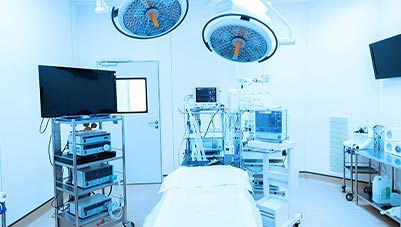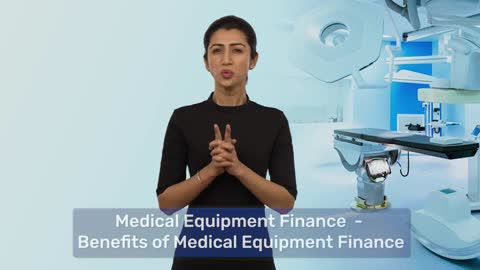In the realm of advanced life-saving technologies, the Extracorporeal Membrane Oxygenation (ECMO) machine stands out as a critical tool in critical care. Designed to temporarily support heart and lung function, an ECMO machine is used in cases where traditional life support fails to sustain a patient. It is often employed in intensive care units (ICUs), especially for patients suffering from severe cardiac or respiratory failure.
Over the years, ECMO has played a pivotal role in improving survival outcomes during complex surgeries, post-cardiac arrest care, and in managing conditions like ARDS (Acute Respiratory Distress Syndrome). With the increasing demand for sophisticated medical technology in India, the availability and affordability of ECMO machines have gained prominence. Hospitals, clinics, and specialised medical centres are increasingly investing in this advanced piece of medical equipment to enhance patient care. Let’s understand what an ECMO machine is, how it functions, its types, pricing in India, and financing options available.
What is an ECMO machine?
An ECMO (extracorporeal membrane oxygenation) machine is an advanced life-support system that temporarily takes over the functions of the heart and lungs. It circulates blood outside the body, oxygenates it, and removes carbon dioxide, allowing the patient’s weakened organs to rest and heal. The setup includes a pump, specialized tubing, and an oxygenator (artificial lung). ECMO is typically used for critically ill patients facing severe, life-threatening heart or lung failure when other treatments are no longer effective.
Components of ECMO Machine
- Cannulas: Flexible tubes placed in major blood vessels to draw blood out and return it to the body.
- Pump: A mechanical device that circulates blood through the ECMO system and supports or replaces the heart’s pumping function when needed.
- Oxygenator: An artificial lung that carries out gas exchange by adding oxygen to the blood and removing carbon dioxide.
- Heat exchanger: A component that keeps the blood at an appropriate and stable temperature during the process.
How does an ECMO machine work?
The ECMO system replicates the gas exchange process of the lungs and the pumping function of the heart. Here's how it works:
- Blood extraction: Cannulas are surgically inserted into major veins or arteries—usually in the legs, neck, or chest—to draw blood out of the body.
- Oxygenation: The blood is then circulated through a membrane oxygenator (artificial lung), where oxygen is added and carbon dioxide is removed.
- Temperature regulation: A heat exchanger brings the blood back to normal body temperature before it is returned.
- Blood re-entry: The warmed, oxygen-rich blood is delivered back into the body through a separate cannula, completing the ECMO circuit.
Types of ECMO machines
There are two primary types of ECMO machines, depending on the function required:
Veno-Arterial (VA) ECMO
Supports both heart and lung functions
Blood is taken from a vein and returned into an artery
Typically used in cardiac failure or arrest situations
2. Veno-Venous (VV) ECMO
Supports only lung function
Blood is extracted and returned through veins
Commonly used in severe respiratory conditions like ARDS
Each type is chosen based on the patient's condition and is crucial in ensuring the correct support mechanism is employed.
Benefits of using ECMO machine
ECMO machines offer several significant benefits in life-threatening situations:
- Supports organ recovery: Allows heart and lungs time to rest and heal
- Bridge to transplant: Keeps patients stable while awaiting heart or lung transplants
- Improves survival rates: Offers a survival advantage in critical care scenarios
- Enables complex surgeries: Used in cardiac surgeries requiring temporary bypass support
- Reversible conditions: Useful for reversible respiratory or cardiac conditions like myocarditis or severe pneumonia
The technology has proven invaluable in emergency care and continues to evolve with better portability and efficiency.
ECMO machine price range in India
The cost of ECMO machines in India varies based on brand, features, and accompanying components. Here's an overview:
| ECMO System Type | Price Range |
| Basic ECMO setup | Rs. 35 lakh – Rs. 45 lakh |
| Mid-range models | Rs. 50 lakh – Rs. 70 lakh |
| High-end advanced ECMO systems | Rs. 75 lakh – Rs. 1.2 crore |
Key factors affecting ECMO machine prices
Several elements influence the final cost of ECMO machines in India:
Brand and manufacturer: International brands cost more due to import duties
Features and technology: Advanced models with digital monitoring and automation cost higher
Portability: Compact, portable ECMO devices have higher price points
Accessories and consumables: Includes tubing sets, oxygenators, etc.
Warranty and after-sales support: Extended service contracts and AMC can add to the cost
Import duties and taxes: For machines sourced from abroad
Understanding these factors helps in making informed procurement decisions.
Factors to consider before buying an ECMO machine
Before investing in an ECMO system, consider the following key points:
-Clinical requirement: Assess how often and for what conditions it will be used
-Hospital infrastructure: Ensure the setup supports necessary ICU configurations
-Trained personnel: Availability of ECMO-trained doctors, perfusionists, and nurses
-Budget constraints: Account for both machine and ongoing operational costs
-Brand reputation: Choose reliable and well-supported brands
-Service availability: Local service network and spare parts support
-Regulatory approval: Must be certified by medical device authorities in India
Financing options for ECMO machines in India
Given the high cost of ECMO machines—ranging from ₹35 lakh to over ₹1 crore—many hospitals and clinics turn to medical equipment finance to ease the burden of upfront capital investment. Financing solutions offer flexible repayment options that allow healthcare providers to procure advanced equipment without disrupting their cash flow. Options include term loans, lease-to-own models, and equipment rentals. NBFCs and financial institutions offer quick approvals, minimal documentation, and custom EMI structures to suit the specific needs of healthcare businesses. Many providers also extend financing on used or refurbished ECMO systems. Moreover, attractive medical equipment finance interest rates and seasonal offers make it more feasible for hospitals to adopt cutting-edge technology. For doctors or institutions planning large-scale upgrades, a doctor loan or professional loan further support end-to-end funding. With the right financing, life-saving ECMO systems can become accessible and sustainable.
Conclusion
The ECMO machine is a critical investment for hospitals and healthcare providers dealing with high-risk cardiac and pulmonary cases. While the equipment is complex and expensive, its life-saving capabilities make it indispensable in modern ICUs. Understanding its types, working mechanism, and price range is essential for healthcare buyers and practitioners. With rising demand, there are now multiple avenues to procure this vital medical equipment through easy financing. Whether through medical equipment finance or rental options, institutions can make ECMO machines accessible without heavy upfront burden. To further optimize investments, one can also explore special interest plans and tailor-made loans for doctors.













